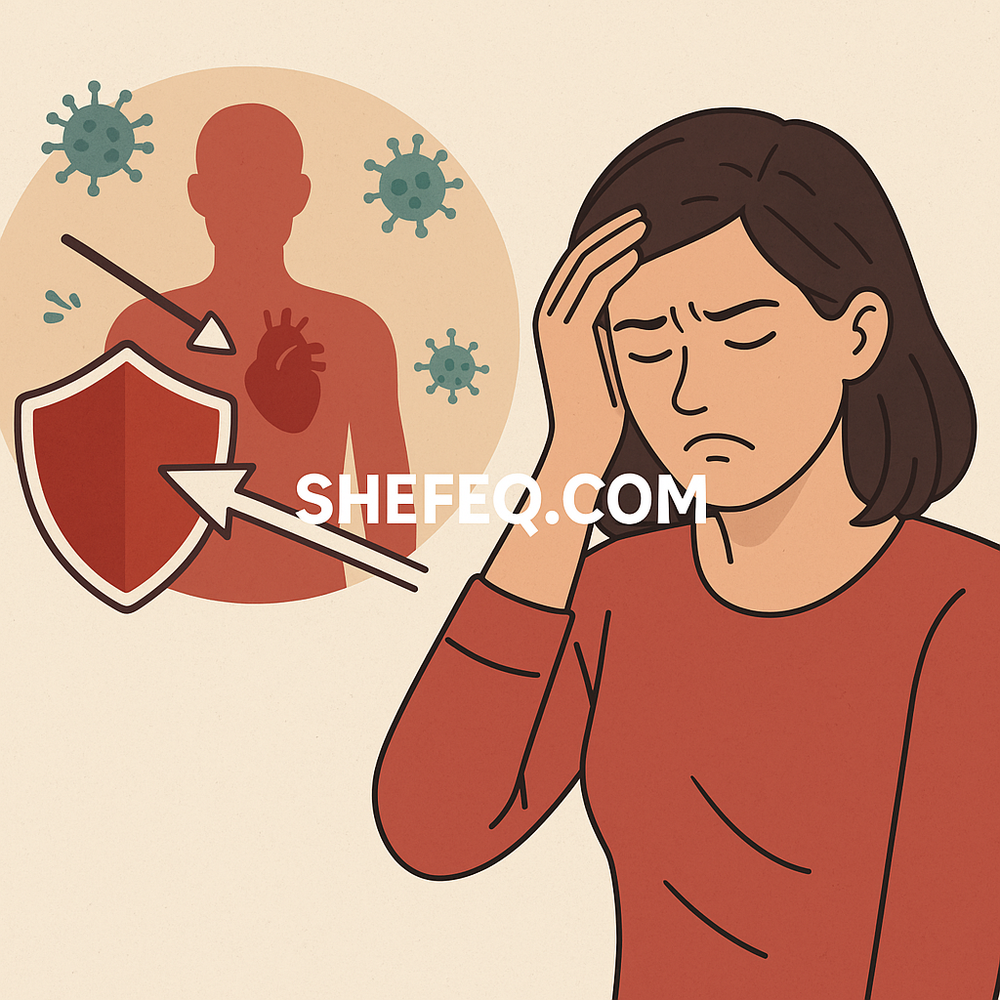S – Social Perspective: Why Does the Body Attack Itself?
Sometimes, the harshest attack doesn’t come from the outside, but from within. This attack isn’t only from thoughts and emotions — it comes from the body’s own cells. And that is the silent story of autoimmune diseases.
Society often tells us: “You must love yourself,” “Listen to your inner voice.” Yet, despite these messages, more and more people are harsh on themselves, criticize and suppress their feelings. According to some studies, this internal emotional conflict can confuse the immune system, making it treat its own cells as enemies.
Many people with autoimmune diseases say:
“I’ve pressured myself so much...”
“I’ve always swallowed everything and told no one...”
“To appear strong, I’ve buried all my weaknesses inside.”
These statements are not just emotional weight — the body remembers them, and one day it turns against “the self.” As if saying: “You stopped protecting yourself, so did I...”
A – Academic Perspective: Biological and Psychological Foundations of Autoimmune Diseases
In autoimmune diseases, the immune system — the body's defense mechanism — begins to damage its own healthy tissues. Some of these diseases include:
-
Lupus (SLE)
-
Rheumatoid arthritis
-
Hashimoto's thyroiditis
-
Scleroderma
-
Celiac disease
-
Psoriasis (a dermatological autoimmune disease)
-
Type 1 diabetes
While some of these illnesses are linked to genetic predisposition, scientific studies in recent years show that psychological factors also play a significant role:
-
Chronic Stress
Chronic stress disrupts immune system balance. Prolonged high cortisol levels lead immune cells to send incorrect signals. As a result, the body begins to misidentify its own cells as foreign. -
Trauma and Early Childhood Experiences
Studies in psychoneuroimmunology show that individuals with childhood trauma have a higher risk of developing autoimmune diseases. Such traumas — lack of love, verbal or physical abuse, emotionally unsafe environments — leave deep marks on the development of the immune system. -
Lack of Recognition and Emotional Expression
People with autoimmune diseases often have difficulty expressing emotions. They internalize anger and sadness, which then manifest in the body through immune responses. -
Experts' Viewpoints
Prof. Dr. Gabor Maté, in his book “When the Body Says No”, states: “Autoimmune diseases often arise in people who are overly responsible and suppress their true emotions.”
In psychosomatic medicine, this is referred to as “cellular memory” or the “emotional mirror of the body.”
I – Societal Perspective: Invisible Pain and Public Indifference
Autoimmune diseases are often invisible. These individuals feel pain, fatigue, and skin changes — but society doesn’t always acknowledge their condition. Especially when hearing:
“You look fine, why are you tired?”
“Stop being dramatic.”
“Maybe it’s all in your head…”
Such phrases add emotional weight to patients who are already fighting an inner war. They struggle not only with physical pain, but with disbelief and judgment.
Moreover, these illnesses are not about visible wounds, but deep internal processes. Their pain isn’t something that can be bandaged — it grows silently, sometimes in solitude, sometimes under social pressure.
Society needs a shift in perspective:
-
People must begin to understand the impact of emotions on the body.
-
The concept of “silent pain” should become publicly recognized.
-
Psychological support and therapeutic approaches must be integral to medical treatment.
T – Research Perspective: How Science Explains the Psychological Mechanisms of Autoimmunity
Recent studies show a strong connection between emotional state and autoimmune conditions. This link is explained through several key mechanisms:
-
Hypothalamic-Pituitary-Adrenal (HPA) Axis Dysfunction
During stress, the HPA axis activates, releasing cortisol and other hormones. Prolonged activation weakens this system and leads to immune system dysregulation. -
Cytokine Imbalance
Stress increases levels of pro-inflammatory cytokines (like IL-6, TNF-alpha), which promote tissue damage and trigger the body to attack its own cells. -
Brain–Immune System Connection
Emotional decision-making centers in the brain (amygdala, hippocampus) are linked with immune cells. In conditions such as depression, anxiety, and trauma, this connection becomes hypersensitive and disordered. -
Microbiome and Emotional Health
Gut microbiota affects not only digestion but also emotions and immunity. When microbial balance is disturbed, both psychological and immune functions suffer.
Conclusion: Not a War Against Yourself — But Peace With Yourself
Autoimmune diseases are not just biological disorders — they may be the result of a broken internal dialogue. When a person starts fighting their own body, the cells join the battle too.
What is the way out?
-
Express your emotions: Don't keep everything inside — share it.
-
Make peace with your inner child: Face and acknowledge past trauma.
-
Release pressure and breathe: You don’t have to be a hero — just be human.
-
Listen to your body and treat it like a friend.
Autoimmune diseases remind us that we’ve forgotten ourselves.
A person who knows and understands themselves — protects their body from inner attack.

